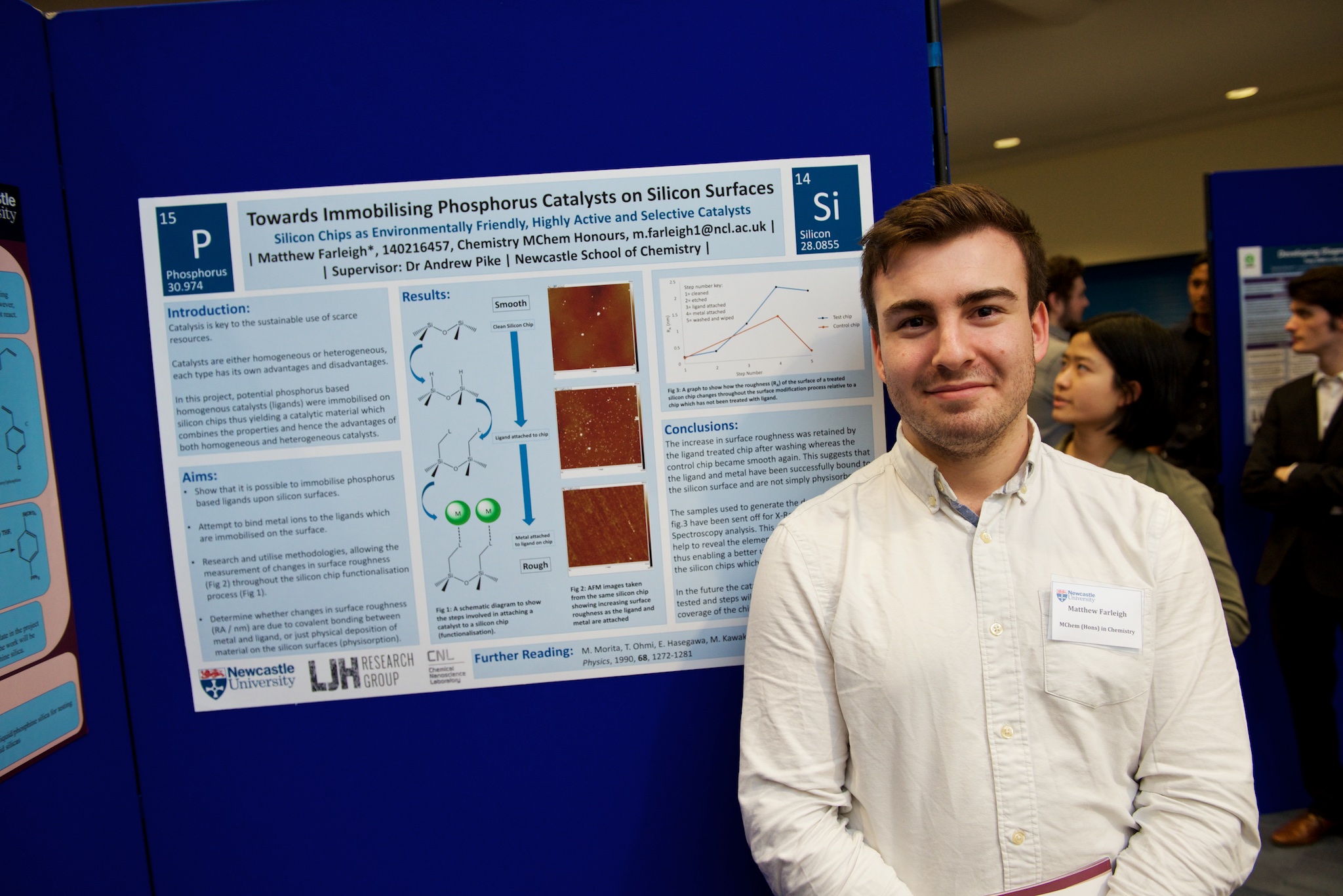2016 Participants
 Matthew Farleigh
Matthew Farleigh
- Mchem (Hons) Chemistry
- Silicon Chips as Environmentally Friendly, Highly Active and Selective Catalysts
Catalysis is key to the sustainable use of scarce resources. Using comparatively small amounts of catalyst, we can exponentially increase the efficiency of many industrial processes. In doing so, we reduce the pressure placed upon dwindling stockpiles of fossil fuels and other precious raw materials. Catalysts come in two forms; heterogeneous and homogenous. Most heterogeneous catalysts are solids that act on reagents in a liquid or a gas, and hence are in a different phase. Homogeneous catalysts on the other hand are in the same phase as the reactants and are said to be molecular, they have an inherent tunability, and thus greater selectivity in terms of the reactions which they catalyse. In this project potential homogenous catalysts were immobilised on silicon chips in order to yield a catalytic material which shares the properties and hence the advantages of both homogeneous and heterogeneous catalysts. In addition, the semiconductor nature of the solid silicon chips allows for the electrochemical monitoring of the catalytic process.
Funding source: Newcastle University
Supervisor: Dr Andrew Pike
